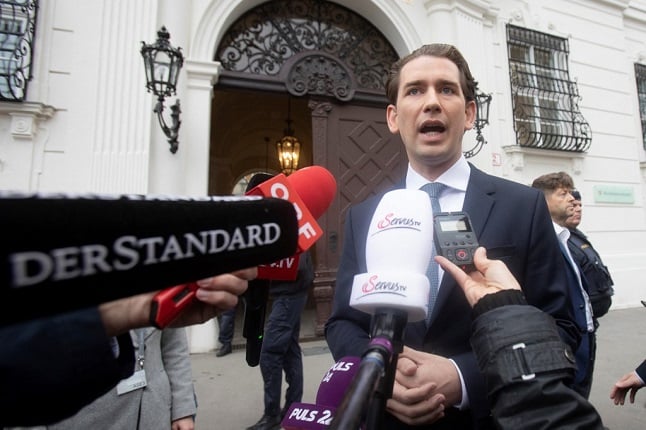Kurz — once hailed as a “wunderkind” of Europe’s conservatives — resigned from the top post in 2021 amid a string of wide-ranging corruption scandals.
Investigators on Thursday raided the Vienna office of free-of-charge tabloid Heute on suspicion it published flattering articles in exchange for public adverts.
Kurz and several others are being investigated on suspicion of corruption, prosecutors said in a statement late Thursday. The Heute raid is reportedly based on extensive testimony given by Thomas Schmid, a former finance ministry official and Kurz ally.
BACKGROUND: Austria’s Sebastian Kurz implicated by former ally in corruption scandal
Schmid, who is seeking to be a witness in the case, told prosecutors that Kurz knew of the embezzlement of public funds between 2016 and 2018 in order to promote his rise, according to media leaks.
“The statements by Thomas Schmid that incriminate me are fictitious,” Kurz said on Facebook, accusing Schmid of trying “to obtain witness status by making allegations against others and so avoid punishment himself”.
Heute publisher Eva Dichand has also dismissed the claim she “would have agreed to positive coverage in exchange for advertisements” as “false”. Another tabloid, Oesterreich, is also suspected of having published rigged polls in favour of Kurz in exchange for lucrative public adverts.
READ ALSO: ‘Reforms needed urgently’: Is Austria becoming more corrupt?
Kurz, 36, is also already under investigation over providing false testimony to a parliamentary committee probing graft allegations.
Austrian politics has been rocked by a string of graft scandals that already brought down Kurz’s first government with the far-right. Though Kurz has resigned, his People’s Party (OeVP) remains in power, currently governing with the Greens.
Kurz is now involved in numerous private international enterprises, including launching a cybersecurity company with the ex-head of Israel’s NSO Group, which makes controversial Pegasus spyware.



 Please whitelist us to continue reading.
Please whitelist us to continue reading.
Member comments